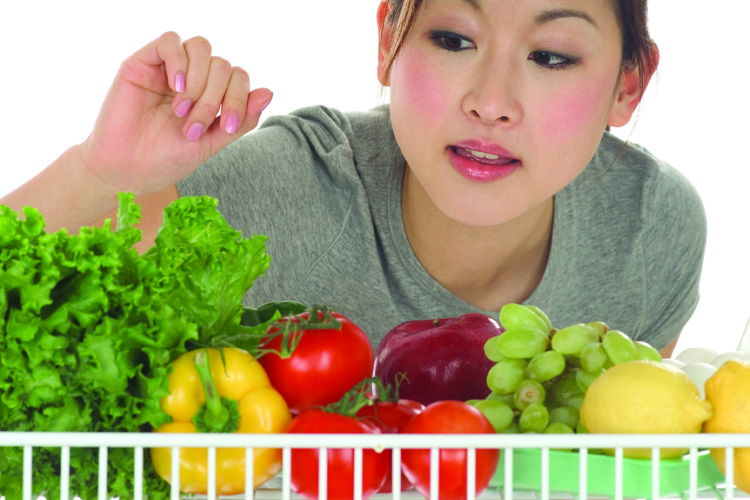You may be surprised at what lies ahead: 10 feel-good foods that appear to be pretty harmless but are actually quite unhealthy. If you are unsure if the seemingly-healthy food is good to eat, just be safe and limit your intake if a nutritionist stays clear from that food too. Who would know better than a nutritionist if the food will heal or kill you. So if a nutritionist won’t touch the food, it’s pretty obvious why.
Unfortunately, with the rising cost of groceries, it is more economical to opt for the unhealthier route, which is more often easier and quicker to prepare as well. The culprits are usually processed food such as nuggets and sausages, which you can easily dump straight from the freezer into the fryer when you return home from work. Although you may save a lot of time and make the little ones happy with such food, your family and yourself will probably end up with plenty of health-related diseases as the years go by. If you think those food can’t possibly be that harmful since everyone eats them on a regular basis, let’s see what are the ten food items that a nutritionist would never eat:
Table of Contents
Grits
Perhaps Malaysians are not pretty familiar with grits but the ingredient is pretty common in most food. Grits are the small leftover pieces from corn processing and is categorized as hyper-refined carbs. Grits contain no minerals or vitamins but they do contain a small amount of fibre and is free from essential fats. As grits are usually lacking in taste, heavy cream or butter is used to make them palatable, bringing together the extremely bad combination of simple carbohydrates and saturated fat that loves to clog your arteries.
Sugar-sweetened beverages
Let’s all be honest here – it is extremely challenging to bid this bad habit goodbye as we constantly crave sweet things and it doesn’t help that they are so easily available. If you find it hard to resist the bottle of soda calling out to you from the supermarket shelf, perhaps you should know that the empty calories contained in sugar-sweetened beverages adds inches to your waistline without offering any sense of satiety or fullness.
That’s not all; drinking sugary beverages also promotes disturbances in your body’s inflammatory balance, making it harder to recover from exercise and increases your risk of numerous chronic diseases. However, simple sugars do an excellent job of reducing your risks of heart disease by lowering your good cholesterol and increasing your triglyceride levels. Plain water is always the best, so opt for water or a calorie-free infused drink instead of a can of soda or sweetened tea.
Refined grains
The term is likely to sound alien to you but what it actually is are grain-based foods like certain breakfast cereals, pastas and rice products which have been refined. Many would associate the term ‘refined’ with something of superior quality but nutritionists would actually stay away from refined cereals. Refined food products have been processed until the fibre, vitamins and minerals contained are no longer present in the grains.
Shark meat
Shark meat is indeed yummy but the high amount of mercury present in its flesh outweighs the benefits of the healthy omega-3 fats it contains. Sharks have an omega-3 fat content similar to tuna but contain almost three times more the amount of mercury. Salmon would be your best bet for reaping the benefits of omega-3 fats while keeping the level of mercury low in your body.
Seitan
There is nothing savoury of this ingredient – definitely not its name and not its effects to health. Seitan, originally from Asia, is a common meat substitute for vegetarian dishes. Unlike many meat substitutes, seitan is not soy-derived but made entirely of wheat gluten. Wheat gluten is a highly allergenic protein that is found in small amounts in wheat-based products. While there is no research yet linking consumption of seitan to an increase in gluten allergies, eating a lot of this allergenic protein may trigger a more severe intolerance.
Rice cakes
Rice cake lovers wouldn’t be too happy that they would have to cut down on their intake. Rice cakes can have a glycaemic index rating as high as 91 (pure glucose has a rating of 100), making it the kind of carbohydrate that will shoot your blood sugar as high as a roller coaster. Needless to say, this is bad for weight loss and your health. Rice cakes may have been touted as the ultimate diet food during the low fat/no fat craze in the late 1980s and 1990s but newer developments have proved that rice cakes aren’t that healthy after all.
Fat-free salad dressing
Don’t be fooled into thinking that fat-free dressings are amazing health products, because they are not. Although salad dressing is the perfect combination of vinegar (which helps control blood sugar) and plant oils (full of essential fatty acids and sometimes antioxidants), an irrational fear of dietary fats has forced food companies to mess around with this perfect blend. The resulting fat-free salad dressings have introduced sugar and high fructose corn syrup, emulsifying agents with unpronounceable names and other food science secrets used to make the unnatural seem natural. It’s too easy to make your own healthy salad dressing to ever let this bottled science experiment go into your mouth.
“Gourmet” frozen vegetables
It is easy and tempting to grab a packet of peas doused in an herbed butter sauce, but why do so when you can make your own? Just cook the peas, add a pat of butter and sprinkle on some herbs that you already have on hand. The same thing goes for carrots with dill sauce and other gourmet veggies. Frozen vegetables are rich in preservatives that are strong enough to make those veggies last for months and years on the shelves.
Pre-cooked meals
Just take a look at the frozen food section at the hypermarket and you’d find a wide array of almost ready-to-eat meals. There is nasi briyani, rice with green curry and even rice with kungpao chicken. Yes, they are quick and convenient but have you ever wondered how can cooked meals last that long in a box? It is healthier to cook your own but if you simply have no time or skill, taking away freshly cooked food from the stalls is a safer bet.
Energy bars
This one is a bit of a shocker – aren’t these bars supposed to be the health food that every hardcore gym-going fitness freak snack on? These calorie-laden bars are also usually placed at the cashiers, hoping that an impulse buyer would grab them, thinking they are more wholesome than a candy bar. Unfortunately, they can have very high fat and sugar content and often contain as much calories as a regular candy bar. They are also two to three times more expensive than a candy bar. If you need a boost, a vitamin-rich piece of fruit, a yogurt or a small handful of nuts is more satiating and less expensive!
It is simply shocking that food such as cereal, energy bars and even fish, which you have thought to be wise consumptions, aren’t actually good for you. Now that you know better, it is not too late to change the diet of you and your family.
















